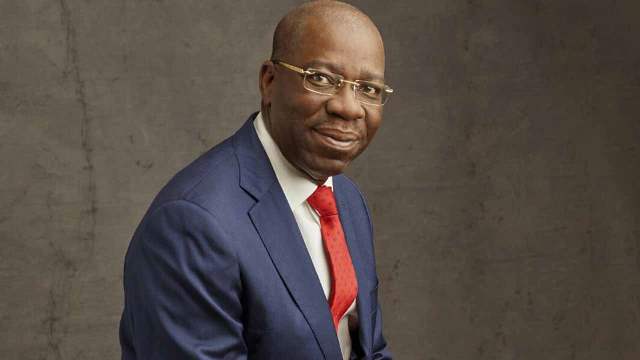Mr. Godwin Obaseki, the Edo State governor, on Monday presented the 2019 Appropriation Bill with plans to spend a total of N175.7 billion in the 2019 fiscal year, broken into Capital Expenditure, N95.8 billion and Recurrent Expenditure, N79.9 billion.
Presenting the 2019 budget estimates to a session of the Edo State House of Assembly in Benin City, the state capital, Obaseki said: “Our budget size for 2019 fiscal year is N175.7 billion, which is a 9.20 per cent nominal increase from the 2018 budget. This budget comprises N79.9 billion for Recurrent and N95.8 billion for capital expenditures.”
He explained: “The revenue estimates for the budget are based on a $60 per barrel bench mark for crude oil at an average daily production of 2.3m barrels per day as well as an increase in Internally Generated Revenue (IGR), as a result of reforms in revenue collection in the state.”
He assured that “The 2019 budget christened ‘Budget of Socio-Economic Inclusion’ will propel us closer to the Edo of our dreams, after we have weathered the shocks from different economic headwinds in the last two years.”
On the areas that would receive priority attention, he told the Assembly that “Consolidating on the gains from the last two years, we intend to keep prioritising capital spending.
“We propose a capital/recurrent expenditure ratio of (54.5%:45.5%) which demonstrates our commitment to fortify the economy and our people for sustained growth.”
According to Obaseki, “the 2019 budget proposal reflects this administration’s intention to promote social inclusion and economic empowerment for Edo citizens, through the deepening of investments in socio-economic, governance and security infrastructure; and through the implementation of initiatives that guarantee equal access to education, health care and social protection.”
He highlighted the focus of 2019 budget proposal as: Continued investment in the rehabilitation of existing (and the development of new) socio-economic infrastructure; Strengthen internal capacity for project execution & governance; Scale up investments in socio-welfare enhancement programmes (in education, healthcare and rural development); Continued investment in programmes/projects for job creation particularly through Industrialisation, Agriculture, and Micro Small and Medium Enterprises (MSME) development as well as Enhanced investment in Security and Administration of Justice.”
He noted that the 2019 budget proposal reflected his administration’s “unflinching commitment to our people and their social, economic and infrastructural wellbeing, which explains why a significant aspect of the capital expenditure is allocated for infrastructural projects, stimulate socio-economic growth, provide quality education, health care and boost wealth creation to ensure our people reap the benefits from increased investment.”
The governor added: “Our big-ticket projects, including the Benin Industrial Park, the Benin River Port and Edo Modular Refinery Project, are well on course.” N3 billion has been set aside as the contribution of the state as initial investment commitment for the Benin Industrial Park, the necessary preliminary works are ongoing and in no distant time, the first set of companies will set up shops to provide jobs and services in the state.
“One of the priority areas of the proposed 2019 capital expenditure framework is to strengthen internal capacity for project execution and governance with a view to achieving 80 per cent closure rate on all ongoing projects.
“Much as we are intensifying effort to complete reconstruction of roads across the state, we are also ready to commence new ones to close the infrastructure gaps in the state. Work on the roads will be ramped up during the dry season.
“Other necessary infrastructure to complement our investment drive will also be catered for. As a result, N42.719 billion has been earmarked for infrastructure development to drive economic activities.
“One area of emphasis will be maintenance. A road maintenance agency will be set up and properly funded to ensure prompt intervention and save the huge cost of repair and damage.
“We are also scaling up government investment in socio-welfare enhancement programmes in basic education, primary healthcare and rural development.
“On healthcare, N9.328 billion has been earmarked to consolidate on the gains in the sector, including support for the Edo Healthcare Improvement Programme (Edo-HIP), which is targeted at overhauling the primary health care system and setting up modern, solar-powered, efficient Primary Healthcare Centers across the state.
“The sum of N1.7 billion has been set aside for primary healthcare reforms. With this, we will be inching closer to the planned 200 PHCs to be sited in wards across the state.”














